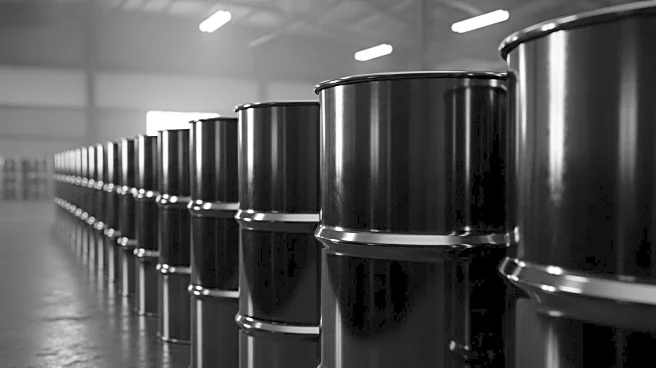What's Happening?
The Organization of the Petroleum Exporting Countries (OPEC) and its allies, including Russia, have decided to increase oil production by 137,000 barrels per day starting in November. This decision mirrors the production increase from October and comes amid ongoing concerns about a potential supply glut. Russia supported this modest increase to avoid putting downward pressure on oil prices, while Saudi Arabia had advocated for a more substantial hike to quickly regain market share. The decision was made against a backdrop of rising Venezuelan exports, resumed Kurdish oil flows via Turkey, and unsold Middle Eastern barrels, which have contributed to a complex supply landscape.
Why It's Important?
The decision by OPEC+ to maintain a modest production increase is significant for global oil markets, as it reflects the group's cautious approach to balancing supply and demand. The move is likely to influence oil prices, which have already seen a slight increase following the announcement. The decision also highlights the differing priorities within OPEC+, with Russia focusing on price stability and Saudi Arabia aiming to expand market share. This development could impact global energy markets, particularly in regions dependent on oil imports, and may affect geopolitical dynamics, especially in relation to sanctions on Russian oil.
What's Next?
As OPEC+ continues to navigate the complexities of global oil supply and demand, future meetings will likely focus on adjusting production levels in response to market conditions. The group's decisions will be closely monitored by global markets, as they have significant implications for oil prices and economic stability. Additionally, the ongoing geopolitical tensions, particularly involving Russia, may influence future production strategies and international relations.









